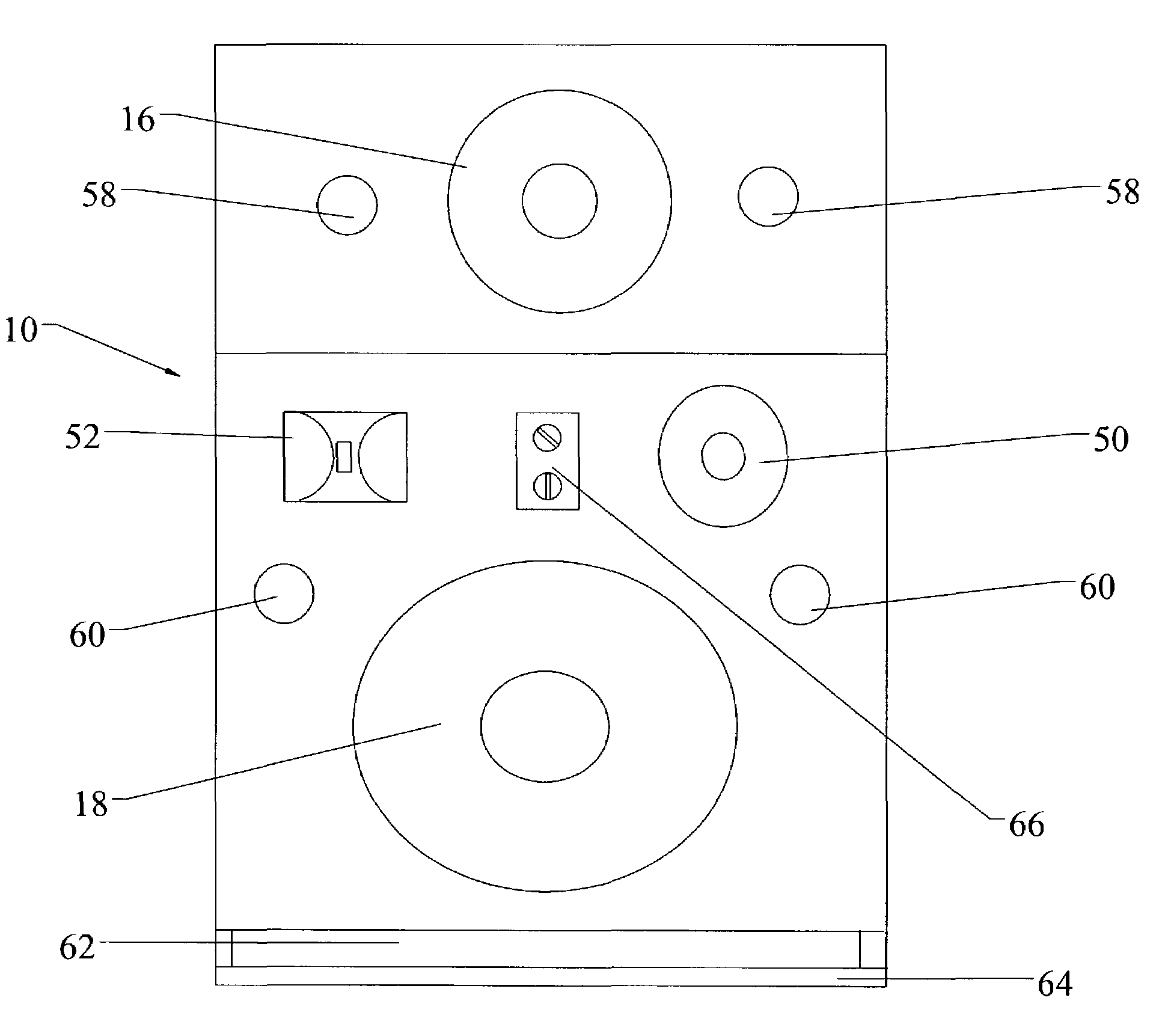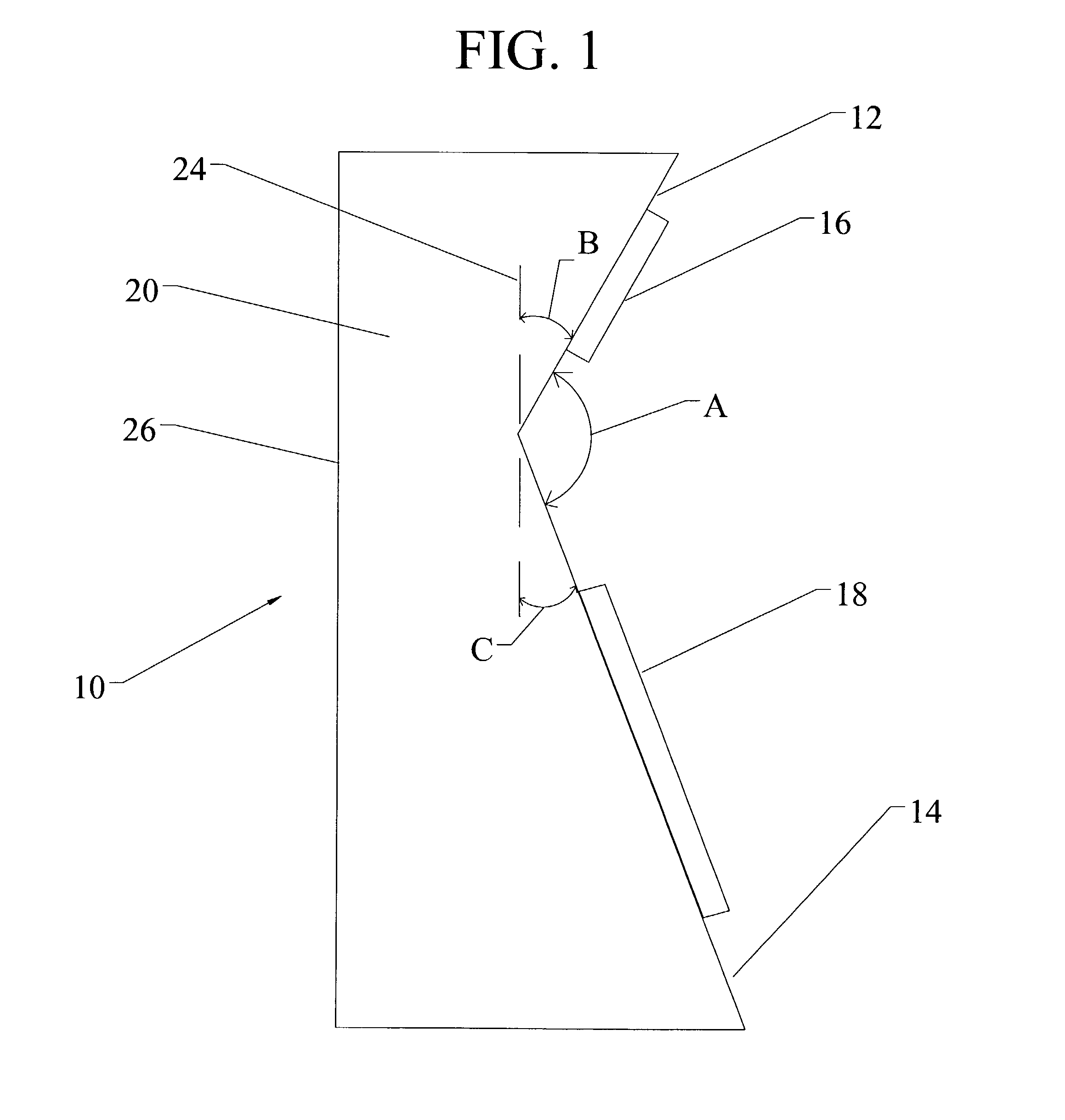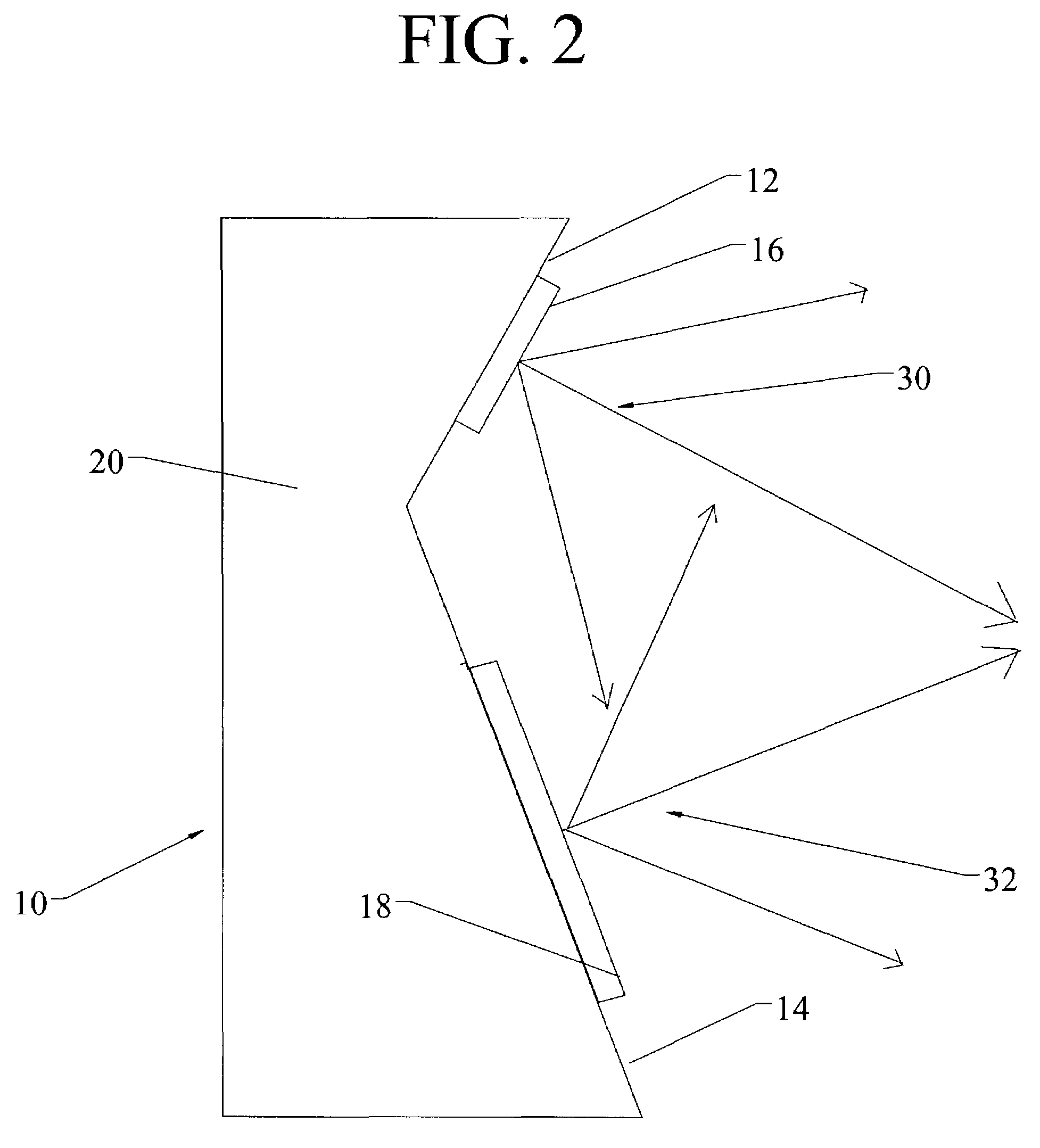Speaker system
a technology of speaker system and speaker body, which is applied in the direction of electrical apparatus casing/cabinet/drawer, cabinet, application, etc., can solve the problems of increasing the cost of the system, difficulty in attaching wires, and component level systems
- Summary
- Abstract
- Description
- Claims
- Application Information
AI Technical Summary
Benefits of technology
Problems solved by technology
Method used
Image
Examples
Embodiment Construction
[0025]Referring first to FIG. 1, a side view of the basic embodiment of the speaker system 10 of the present invention is shown. The speaker system 10 of the present invention includes a first speaker 16, a second speaker 18, and a housing 20 having a first mounting surface 12 to which the first speaker 16 is mounted and a second mounting surface 14 to which the second speaker 18 is mounted. The first mounting surface 12 and the second mounting surface 14 are substantially planar and abut one another to form an included angle A of between 120 degrees and 140 degrees. Included angle A is equal to one hundred and eighty degrees minus the sum of angles B and C, which are measured from a line 24 parallel to the back wall 26 of the housing and each of the first and second mounting surfaces 12, 14. In the preferred embodiment, included angle A is 132 degrees, angle B is 27 degrees and angle C is 21 degrees.
[0026]As shown in FIG. 2, because the first speaker 16 and second speaker 18 are at...
PUM
 Login to View More
Login to View More Abstract
Description
Claims
Application Information
 Login to View More
Login to View More - R&D
- Intellectual Property
- Life Sciences
- Materials
- Tech Scout
- Unparalleled Data Quality
- Higher Quality Content
- 60% Fewer Hallucinations
Browse by: Latest US Patents, China's latest patents, Technical Efficacy Thesaurus, Application Domain, Technology Topic, Popular Technical Reports.
© 2025 PatSnap. All rights reserved.Legal|Privacy policy|Modern Slavery Act Transparency Statement|Sitemap|About US| Contact US: help@patsnap.com



